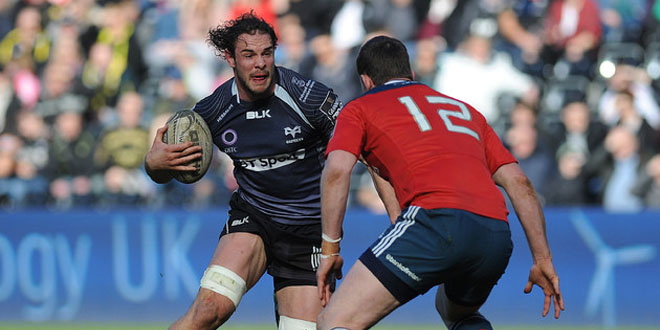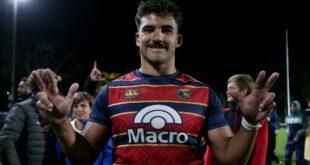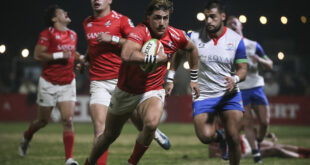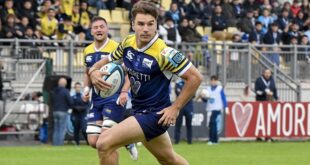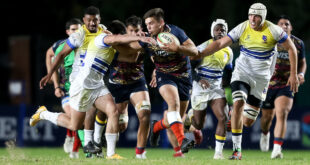Known as the Guinness Pro 12 for commercial reasons the Celtic-Italian league season will get underway on Friday. The competition includes competitors from four unions – Ireland, Italy, Scotland, and Wales.
Ireland and Wales dominate the league by each having four teams. Italy and Scotland make up the numbers with two each. The construction of the teams, though, differ from one union to the next. Ireland’s four teams are all provincial. The natural fit has enabled fans to directly relate to teams. Wales has it rough as the regional structure has alienated supporters yet Welsh geography only complicates matters further.
Neither Scotland nor Italy have the issues that Wales does but rugby is less important to the people in these countries. Scotland’s two teams are purely city-specific with the two largest cities having one each. Italy’s two sides are also city-oriented albeit on a much smaller scale as they are not Rome or Milan but Treviso and Parma.
There have been pushes from within both Scotland and Italy to expand to add new teams. The problem is economic as they are deemed to not be affordable. Previously Scotland had additional teams with the Caledonia Reds and Borders Reivers having both disappeared. Aironi has gone from Italy with Zebre taking its place.
Italian captain Sergio Parisse has argued for Rome to have a team. It and other cities remain possibilities while Aberdeen in Scotland is arguably that country’s best prospect. The possibility of either gaining new teams has, however, been receiving little attention in comparison to expansion – the Pro 12 is openly interested in including teams from North America.
With the Pro 12 not having the same economic backing as the Aviva Premiership or Top 14, teams have not been able to win the European Champions Cup in recent years. With higher budgets the clubs in England and France are today leading the way. In addition to finances the Premiership and Top 14 both also have relegation. The Pro 12 does not which results in teams not taking the competition as seriously as they ought to.
PLAYOFF CONTENDERS
Connacht
Although Connacht won the 2015-16 Guinness Pro 12 title, they are unlikely to do so again this season. The Irish province benefited from the World Cup as only two players were selected for Ireland. They were also not involved in the Champions Cup which enabled them to put all resources into the Pro 12 and come out champions. The team has lost star midfielder Robbie Henshaw and key squad players Aly Muldowney and AJ MacGinty, with their replacements not of the same caliber. A mid-table finish seems most likely.
Glasgow Warriors
Champions in 2015 and losing semi-finalists in 2016, the Warriors will be Scotland’s best hope. The team will need to make do without star Fijian Leone Nakarawa who has departed for France. It has, nonetheless, acquired some other World Cup players – Canadian Djustice Sears-Duru, Italian Leonardo Sarto, and Nakarawa’s countryman Nemia Kenatale. The overall roster is very strong with more than 30 internationals on the books. A staggering 17 players from Scotland’s World Cup roster were from Glasgow. The team will need to play poorly not to reach at least the semi-finals again this season.
Ospreys
The Welsh region had an appalling 2015-16 season, finishing 8th. The team won 11 and lost 10 matches with player fatigue and Welsh selection policies playing their part. Injuries were also a factor which saw Canadians Jeff Hassler and Tyler Ardron both sidelined for the majority of the season. The team has brought in some heavy hitters this season in Wales lock Bradley Davies and Crusaders midfielder Kieron Fonotia. With the Swansea-based side not playing in the Champions Cup and this not being a World Cup year the Ospreys should be title contenders if their star players can stay healthy enough.
Scarlets
Ospreys’ western neighbors are the team most Welsh deem to be the nation’s best chance at a title this season. The region has improved on an already talented roster. Back from Clermont is Lions centre Jonathan Davies while Rhys Patchell is a quality signing from the Cardiff Blues. Also arriving is prolific winger Johnny McNicholl from the Crusaders, who will combine with Canada’s DTH van der Merwe to give them an impressive 1-2 punch out wide. If the forwards can win enough ball, they should have a genuine chance of finishing near the top.
Leinster
As always Leinster is a team with high aspirations. The Eastern-most Irish province has won the competition on four occasions, and finished second five times. This record is vastly superior to that of all others. The province has long been the backbone of the Irish backline and has seen Munster’s dominance of the forwards decrease. For the new season the club welcomes Ireland centre Robbie Henshaw from Connacht and snappy scrumhalf Jamison Gibson-Park from the Hurricanes. Expect to see them competing in the semi-finals.
Ulster
Surely the biggest signing of the season is that of All Black fullback Charles Piutau, who arrives in Northern Ireland from Wasps. He will be joined by another big name in Marcell Coetzee, though a knee injury will keep the Springbok flanker out until the new year. Ulster have strength in depth at key positions and competition for spots that should keep players at their best, and the team in playoff contention come the spring.
MID-TABLE STOCKHOLDERS
Munster
To the south of Leinster lies Munster, another province never far from contention. With three titles on record they are third behind Leinster and the Ospreys. The province did not have a good season in 2015-16, finishing 6th and struggling to find form under coach Anthony Foley. Coming in to help on that front is former Springbok flanker Rassie Erasmus, now just as highly regarded off the field as he was on it. Also arriving from South Africa is towering lock Jean Kleyn, who should have an immediate impact on the set piece. Munster will be a better side this season, but it may not be enough to lift them into the upper echelon just yet.
Cardiff Blues
Once one of the best sides in Europe, Cardiff’s fortunes have fallen far by the wayside. Off-field disruptions and some questionable recruitment in recent years have seen them in the bottom half of the table. The Blues have upgraded their squad without adding big name players, though Super Rugby champion Willis Halaholo is no slouch and diminutive Wales playmaker Matthew Morgan has plenty of talent. To make an impact they will need to get the most out of new no8 Nick Williams, USA forward Cam Dolan, and floundering Welsh winger Alex Cuthbert. If they can’t, it will be another ordinary season for the capital region.
Edinburgh
Finishing two spots below Cardiff but well above the lowly Dragons, Edinburgh are a improving but not at any record-setting pace. Looking to fast track their development the team has added sting to their backline with the additions of Western Force centre Junior Rasolea and former Australia u20 rocket-man Alex Northam to replace outgoing Scotland caps Matt Scott and Dougie Fife. Goal-kicking flyhalf Duncan Weir is a key recruit from Glasgow and gold-medal winning Fiji 7s star Viliame Mata adds a big ball carrier up front. It won’t be enough to put them into the post-season but it should keep them far away from the basement dwellers.
WOODEN SPOONERS
With no relegation in the Pro 12 it is appropriate to instead look at the contenders for last place. Three teams stand out well and truly ahead of the rest.
Benetton Treviso
Last season was not a kind one for Italy’s most famous club. The team played so poorly that it finished dead last with only 3 wins from 22 games. Putting all their top players on the pitch at once proved a challenge with international call-ups and injuries getting in the way, but there was also a question of leadership. To that end former Canada coach Kieran Crowley has been hired with a number of key recruits hopeful of lifting the team from the basement. Azzurri flyhalf Tommaso Allan arrives from France, Tommaso Benvenuti from England, Marty Banks ships in from the Highlanders, and exciting youngster David Odiete joins the side full-time. On paper they are a much better side this year. Now they will have to prove it on the field.
Zebre
Zebre did well to avoid the Wooden Spoon last season but were far from being close to a place in the playoffs. The Parma-based side has a good enough roster to perform even better and certainly ought to be able to finish higher. Losing strike runner Leonardo Sarto is a blow but otherwise the team has made significant upgrades with Joshua Furno and Giamba Venditti back from Newcastle, Lions flanker Derrick Minnie recruited from South Africa, and charismatic New Zealand 7s star Kurt Baker signed up to add some flair to the backline. Like Treviso they look a better side than they did last year, but results may still be hard to come by.
Newport Gwent Dragons
Despite residing in the second largest city in Wales, the Dragons have been a genuine flop in the regional era. Their inability to hold on to their best players has been a death sentence, and the trend continues this season with Wales no8 Taulupe Faletau departing for Bath and a frustrated Jason Tovey landing in Edinburgh. Their off-season recruits are, to a man, best described as journeymen. Having finished just two points ahead of Zebre last season, the region might to well to repeat that this season. Do not be surprised to see them at the bottom.
 Americas Rugby News Rugby news from across the Americas!
Americas Rugby News Rugby news from across the Americas!
